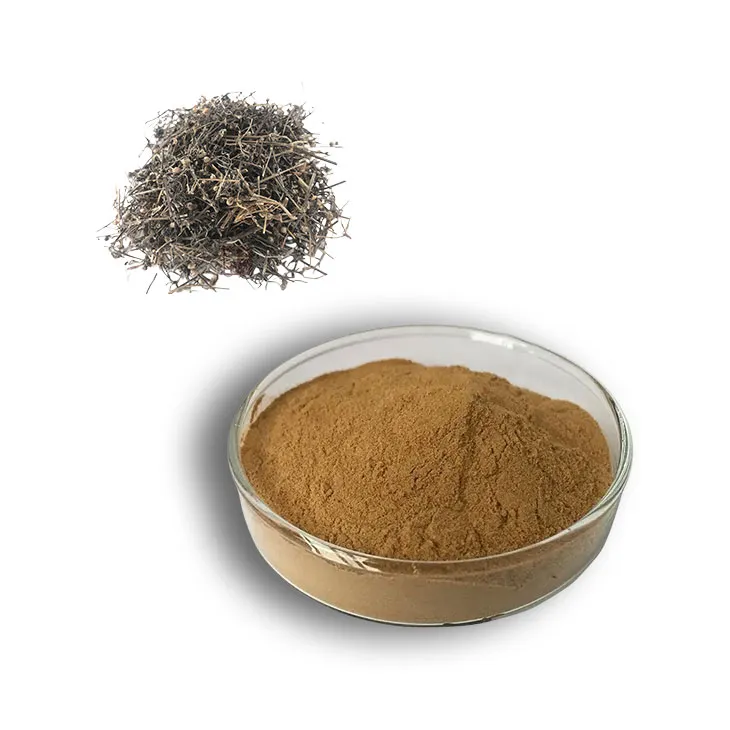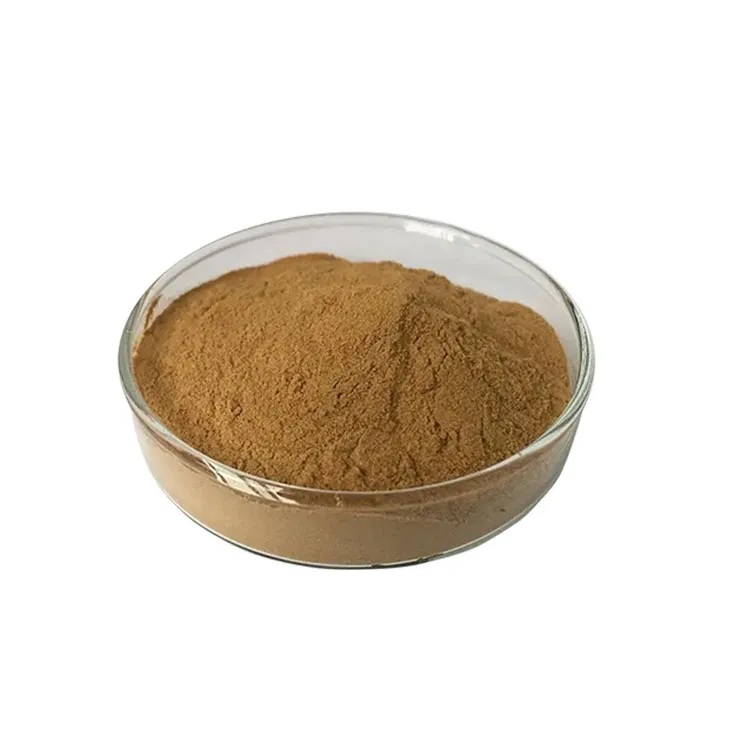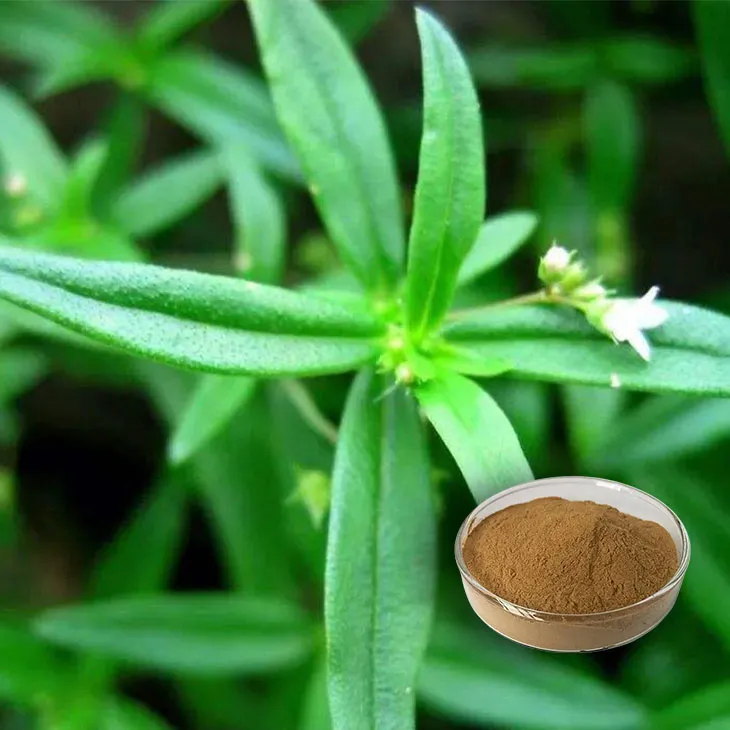- 0086-571-85302990
- sales@greenskybio.com
Supplier of Organic Hedyotis Diffusa Extract Powder.
2024-11-30

1. Introduction
The organic Hedyotis Diffusa Extract powder has been gaining increasing popularity in various fields, such as the pharmaceutical industry, health product manufacturing, and traditional Chinese medicine research. As the demand surges, finding a reliable supplier becomes of utmost importance. This article will explore the key aspects to consider when looking for a suitable supplier of this valuable extract powder.

2. Production Facilities
2.1 Pretreatment of Raw Materials
2.1.1 Quality Inspection
An excellent supplier should start with a strict quality inspection of the raw Hedyotis diffusa. This includes checking for the authenticity of the plant species, ensuring that it is free from contaminants such as pesticides, heavy metals, and harmful microorganisms. Only high - quality raw materials can be the basis for producing excellent extract powder.
2.1.2 Cleaning and Sorting
After inspection, the raw materials need to be thoroughly cleaned to remove dirt, debris, and other impurities. Then, sorting is carried out to separate damaged or sub - standard parts of the plant. This step is crucial for maintaining the purity of the final product.
2.2 Extraction Process
2.2.1 Selection of Extraction Method
There are various extraction methods available for obtaining the active ingredients from Hedyotis diffusa, such as solvent extraction, supercritical fluid extraction, etc. A good supplier should select the most appropriate method based on the desired properties of the extract powder. For example, solvent extraction may be more suitable for large - scale production, while supercritical fluid extraction can produce a higher - quality, more pure extract, especially for pharmaceutical applications.
2.2.2 Optimization of Extraction Conditions
Once the extraction method is determined, the extraction conditions need to be optimized. This includes factors such as temperature, pressure, extraction time, and the ratio of solvent to raw materials. By carefully controlling these conditions, the supplier can ensure a high yield of active ingredients and the quality of the extract powder.
2.3 Powder Production and Packaging
2.3.1 Drying and Grinding
After extraction, the obtained liquid extract needs to be dried to remove the solvent and form a powder. Different drying methods, such as spray drying, freeze - drying, etc., can be used depending on the requirements. Then, the dried product is ground into a fine powder with a uniform particle size. This step affects the solubility and bioavailability of the extract powder.
2.3.2 Packaging
The packaging of the organic Hedyotis Diffusa Extract powder is also very important. It should be packaged in a material that can protect the powder from moisture, light, and oxygen, to ensure its stability during storage and transportation. For example, using aluminum - foil - lined bags or vacuum - sealed containers.

3. Product Variety
3.1 Different Specifications for Different Purposes
-
For pharmaceutical research, high - purity extract powder is often required. This type of extract powder may have a higher content of active ingredients and fewer impurities, which is suitable for in - vitro and in - vivo experiments, drug development, and pharmacokinetic studies.
-
In the production of general health products, cost - effective products are more favored. These products may have a relatively lower purity but still contain sufficient active ingredients to achieve certain health - promoting effects, such as enhancing immunity, anti - inflammation, etc. They can be used in the production of dietary supplements, functional foods, etc.
-
Some customers may have special requirements for the extract powder, such as a specific particle size range, a certain ratio of active ingredients, or the addition of certain excipients. A good supplier should be able to provide customization services to meet these diverse needs.

4. Regulatory Compliance
4.1 International Regulations
-
When it comes to international trade, suppliers need to be familiar with regulations such as the United States Pharmacopeia (USP), the European Pharmacopoeia (EP), and other relevant international standards. For example, the USP may have specific requirements for the identity, purity, and quality control of the Hedyotis Diffusa Extract powder. Suppliers must ensure that their products meet these international standards to be able to export their products to the United States market.
-
In addition, for products labeled as "organic", there are international organic certification standards, such as the USDA Organic in the United States and the EU Organic Certification in the European Union. Suppliers need to obtain relevant certifications to prove that their products are truly organic and can be sold in international markets.
-
Each country also has its own domestic regulations regarding herbal extracts. In China, for example, there are strict regulations on the production, quality control, and marketing of traditional Chinese medicine extracts. Suppliers need to comply with these domestic regulations to ensure the legality of their products within the country.

5. Quality Control
5.1 In - process Quality Control
-
During the production process, continuous quality control is essential. This includes monitoring the quality of raw materials at each stage, as well as the quality of intermediate products during extraction and powder production. For example, regular sampling and testing can be carried out to check the content of active ingredients, purity, and physical properties of the products.
-
Before the product is released to the market, a comprehensive quality inspection of the final product is necessary. This includes tests for identity, purity, potency, and stability. The supplier should also provide detailed quality certificates for the products, including information such as the test methods used, test results, and expiration dates.
6. Research and Development Capability
6.1 New Product Development
-
With the continuous development of the market and scientific research, there is a growing demand for new products based on Hedyotis diffusa extract powder. A supplier with strong research and development capabilities can develop new products, such as novel pharmaceutical formulations, new health product combinations, or improved extraction methods. This can help the supplier to stay competitive in the market.
-
Collaborating with research institutions, such as universities and scientific research institutes, can also enhance the supplier's research and development capabilities. Through joint research projects, the supplier can access the latest scientific research results, advanced technologies, and professional talents, which can be used to improve the quality and performance of their products.
7. Customer Service
7.1 Technical Support
-
Customers may need technical support when using the Hedyotis diffusa extract powder, especially for those in the pharmaceutical and health product industries. A good supplier should be able to provide technical advice on product usage, storage, and safety precautions. For example, providing information on the appropriate dosage, potential side effects, and compatibility with other substances.
-
After - sales service is also an important aspect of customer service. If customers encounter any problems with the product, such as quality issues or delivery problems, the supplier should be able to respond promptly and provide solutions. This includes product replacement, refund, or technical troubleshooting.
8. Conclusion
In conclusion, when looking for a supplier of organic Hedyotis diffusa extract powder, it is necessary to consider multiple aspects, including production facilities, product variety, regulatory compliance, quality control, research and development capabilities, and customer service. Only a supplier that can meet these requirements can provide high - quality products and reliable services, which can meet the diverse needs of customers in different industries.
FAQ:
Q1: What are the key factors to consider when choosing a supplier of organic Hedyotis diffusa extract powder?
When choosing a supplier, several factors should be considered. Firstly, the supplier should have complete production facilities to ensure that each production process from raw material pretreatment to powder extraction and packaging is carried out scientifically and standardly. Secondly, it should be able to offer a variety of product specifications to meet different customer needs, whether for pharmaceutical research requiring high - purity products or general health product production needing cost - effective ones. Also, a good understanding of international and domestic regulations related to organic products is essential to ensure legal sales and use in different regions.
Q2: How can a supplier ensure the quality of organic Hedyotis diffusa extract powder?
A supplier can ensure the quality in multiple ways. With complete production facilities, strict quality control can be implemented at each production stage. Using high - quality raw materials for pretreatment is the first step. During the extraction process, advanced extraction techniques should be adopted to ensure the purity and effectiveness of the extract. Regular quality inspections and compliance with relevant standards and regulations also contribute to ensuring product quality.
Q3: What kind of product specifications can a supplier of organic Hedyotis diffusa extract powder usually offer?
A supplier can usually offer different product specifications. For customers in pharmaceutical research, they may provide high - purity extract powder with a specific ratio of active ingredients. For those in the health product industry, there could be cost - effective products with a relatively lower purity but still meeting certain quality standards. Specifications may also include different particle sizes of the powder, which can affect its solubility and usability in different applications.
Q4: How does a supplier ensure that their organic Hedyotis diffusa extract powder complies with international and domestic regulations?
Suppliers ensure compliance by closely following the regulatory requirements. They keep updated with the latest international and domestic regulations related to organic products. This includes proper documentation of the organic origin of raw materials, compliance with production and processing standards, and obtaining necessary certifications. Regular audits and inspections of their production processes also help in maintaining compliance.
Q5: What are the advantages of choosing a supplier with a wide range of product specifications?
Choosing a supplier with a wide range of product specifications offers several advantages. It allows customers to find products that precisely meet their specific requirements. For example, in pharmaceutical research, a very specific purity level or composition may be needed, and a supplier with diverse specifications is more likely to have the right product. In the health product production, different cost - effectiveness requirements can be met. Moreover, it gives more flexibility to customers as their needs may change over time, and the supplier can likely still provide suitable products.
Related literature
- Title: Study on the Quality Standard of Organic Hedyotis Diffusa Extract"
- Title: "The Production and Application of Organic Hedyotis Diffusa Extract Powder in the Health Industry"
- Title: "Regulatory Requirements for Organic Botanical Extracts: A Case of Hedyotis Diffusa"
- ▶ Hesperidin
- ▶ citrus bioflavonoids
- ▶ plant extract
- ▶ lycopene
- ▶ Diosmin
- ▶ Grape seed extract
- ▶ Sea buckthorn Juice Powder
- ▶ Beetroot powder
- ▶ Hops Extract
- ▶ Artichoke Extract
- ▶ Reishi mushroom extract
- ▶ Astaxanthin
- ▶ Green Tea Extract
- ▶ Curcumin Extract
- ▶ Horse Chestnut Extract
- ▶ Other Problems
- ▶ Boswellia Serrata Extract
- ▶ Resveratrol Extract
- ▶ Marigold Extract
- ▶ Grape Leaf Extract
- ▶ blog3
- ▶ blog4
-
Cordyceps extract suppliers.
2024-11-30
-
Chinese aguaje extract powder manufacturers.
2024-11-30
-
Honeysuckle pollen of the best quality.
2024-11-30
-
Chinese Senna Leaf Extract Suppliers.
2024-11-30
-
Organic Dandelion Root Extract, Australia.
2024-11-30
-
The best bitter gourd extract in 2024.
2024-11-30
-
The best baicalin in nature.
2024-11-30
-
Chinese lily extract manufacturers.
2024-11-30
-
Nature's best β - carotene.
2024-11-30
-
Acai Berry Extract
2024-11-30
-
Tinospora cordifolia extract
2024-11-30
-
Rosemary extract
2024-11-30
-
Hesperidin
2024-11-30
-
Ivy Extract
2024-11-30
-
Marigold Extract
2024-11-30
-
Grape Seed Extract
2024-11-30
-
Sophora Japonica Flower Extract
2024-11-30
-
Red Date Extract
2024-11-30
-
Selenium yeast
2024-11-30





















